Holidays Differ from Different Religions
Most people in the United States have a favorite Holiday. Most of these people celebrate Holidays based on the religion they follow.
http://www.youtube.com/user/GodlovesOurPassion
Muslims follow Islam and the two main holidays they celebrate are Ramadan and the Hajj. There are other smaller Holidays but they are mostly related to Ramadan and the Hajj. Ramadan is the Muslim New Year and the Hajj is the annual trek to their holy land of Mecca. All Muslims are required to make the trek at least once in their lifetime and as many times as they can. For more information about the Holidays of Islam click on the link below.
https://www.thoughtco.com/what-holidays-do-muslims-celebrate-2004366
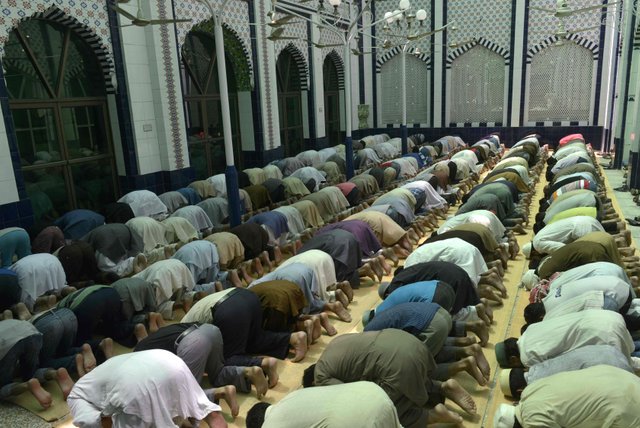
Buddhism main celebration is Buddha's birthday called Vesak. Depending on the area or sect of the Buddhist they may celebrate other Holidays but this is the main one. For more information click the link below. http://www.urbandharma.org/udharma3/holidays.html
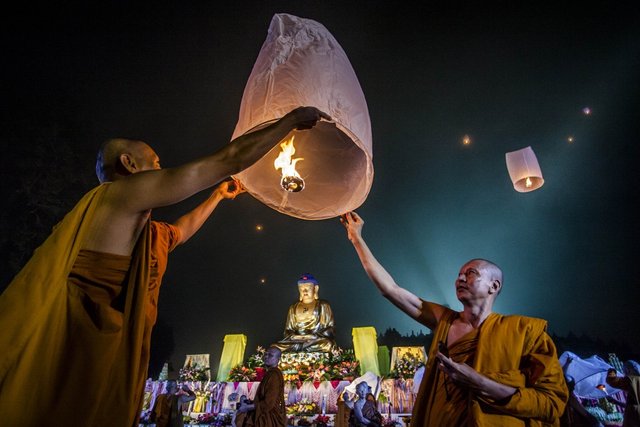
Wicca has eight Holidays called “Sabbats” . One of their main Holidays is October 31, Halloween Night. This is their New Year. Wicca’s New Year Day, October 31st, starts at sundown. It is also known as Samhain or All Hallow's Eve. This is New Years on the Druid calendar. The wall between earth and the underworld is thin at this time of year. On Halloween night, the wall opens. Samhain, the Lord of Darkness, rises from the underworld. He roams the world looking for lost souls. It is an evil and wicked night, a perfect night for a witch to celebrate New Years!
Winter Solstice, (December 21st), is another major Holiday for Wicca, also known as Yule. This is the shortest day of the year. And, conversely, the longest night. Witches and warlocks celebrate the birth of the Sun God, as from this point forward the days get longer. Wiccan celebrations include yule logs, yule trees and Mistletoe. Sounds a little like Christmas, huh!?!
Imbolic is a Holiday observed on February 2, and this day honors the Brigid, the goddess of fertility, fire and healing. It is also a time of increasing strength for the sun god. This Wiccan holiday coincides with Candlemas and Groundhog Day.
This is just 3 of their Holidays. For more information click on the link here. http://www.holidayinsights.com/halloween/witchcal.htm
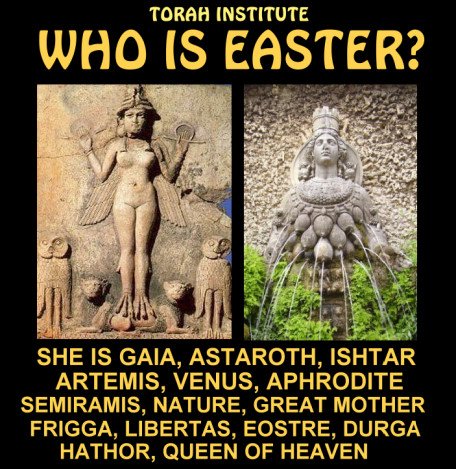
Christians celebrate several Holidays throughout the year. One of the major ones is Easter. This is a celebration of the death and resurrection of Jesus. Other Holidays Christians celebrate is Christmas, Halloween, St. Patrick’s Day, Valentine’s Day among others. There seems to be plenty of Holidays that Christians celebrate. The early church felt it was important to celebrate these Holidays unlike the pagans. They were to be characterized by solemnity and decorum, in sharp contrast to the riotousness of pagan celebrations.
Funny enough Christians didn’t listen very well to others telling them they couldn’t practice the old celebrations from their former religion. Many Christians had been converted from other religions and the Catholic Church started converting pagan religions into Christian ones by just changing who they were worshiping but not the rituals that went with it.
But it wasn’t long before Christians gave into the festivities of pagans. “Despite this early concern about paganism infiltrating Christianity, it seems that Christians began to develop a different perspective on the matter of pagan holidays. Rather than seen as a threat to Christianity, pagan holidays and customs came to be viewed as a way to encourage and ease conversion to Christianity.” This quote is stated on the website “History of Christian Holidays”. A link to that website is here: http://www.religionfacts.com/christianity/history-of-holidays
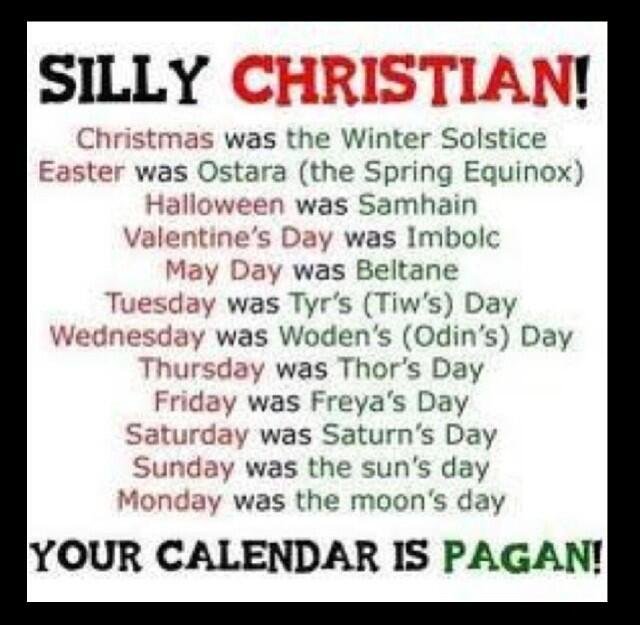
Easter the most celebrated of the Christian Holidays is not really a Christian. This Holiday was originally pagan and was not celebrated by Christians in America until 1870! Almost 100 years after the United States of America became a country. In fact the Christians that came to America were very weary of Easter and Christmas because these celebrations of Spring and Winter were known to be around the time pagans celebrated. The information I found at “The Restored Church of GOD” was so good I am putting some of the information below.
“Does the following sound familiar?—Spring is in the air! Flowers and bunnies decorate the home. Father helps the children paint beautiful designs on eggs dyed in various colors. These eggs, which will later be hidden and searched for, are placed into lovely, seasonal baskets. The wonderful aroma of the hot cross buns mother is baking in the oven waft through the house. Forty days of abstaining from special foods will finally end the next day. The whole family picks out their Sunday best to wear to the next morning’s sunrise worship service to celebrate the savior’s resurrection and the renewal of life. Everyone looks forward to a succulent ham with all the trimmings. It will be a thrilling day. After all, it is one of the most important religious holidays of the year.
Easter, right? No! This is a description of an ancient Babylonian family—2,000 years before Christ—honoring the resurrection of their god, Tammuz, who was brought back from the underworld by his mother/wife, Ishtar (after whom the festival was named). As Ishtar was actually pronounced “Easter” in most Semitic dialects, it could be said that the event portrayed here is, in a sense, Easter. Of course, the occasion could easily have been a Phrygian family honoring Attis and Cybele, or perhaps a Phoenician family worshipping Adonis and Astarte. Also fitting the description well would be a heretic Israelite family honoring the Canaanite Baal and Ashtoreth. Or this depiction could just as easily represent any number of other immoral, pagan fertility celebrations of death and resurrection—including the modern Easter celebration as it has come to us through the Anglo-Saxon fertility rites of the goddess Eostre or Ostara. These are all the same festivals, separated only by time and culture.”
Here is the link where this information comes from. https://rcg.org/books/ttooe.html There is a lot more information on this site that you should read if this information intrigues you.
In conclusion before just blindly following tradition, take another look at the Holidays you celebrate. If a Christian that follows the Bible you might find that GOD (YHWH) has already told us the feasts we should celebrate. In fact they are the same feasts that Christians before 1870 followed as well as early Christians, and Jesus (Yeshua) himself. Here is the list of Biblical Feasts: Passover, Unleavened Bread, Firstfruits, the Feast of Weeks (Pentecost), the Feast of Trumpets, the Day of Atonement, and the Feast of Booths (Tabernacles or Ingathering). After the exile, the Jews added memorial days for the fall of Jerusalem (eventually fixed as the Ninth of Ab), Purim, and the Feast of Dedication (Hanukkah). In addition, the Israelites observed the Sabbath every week and the feast of the New Moon every lunar month. A good resourse for these feasts I have found here: http://www.biblestudytools.com/dictionaries/bakers-evangelical-dictionary/feasts-and-festivals-of-israel.html
And of course the other great reference is The Bible.
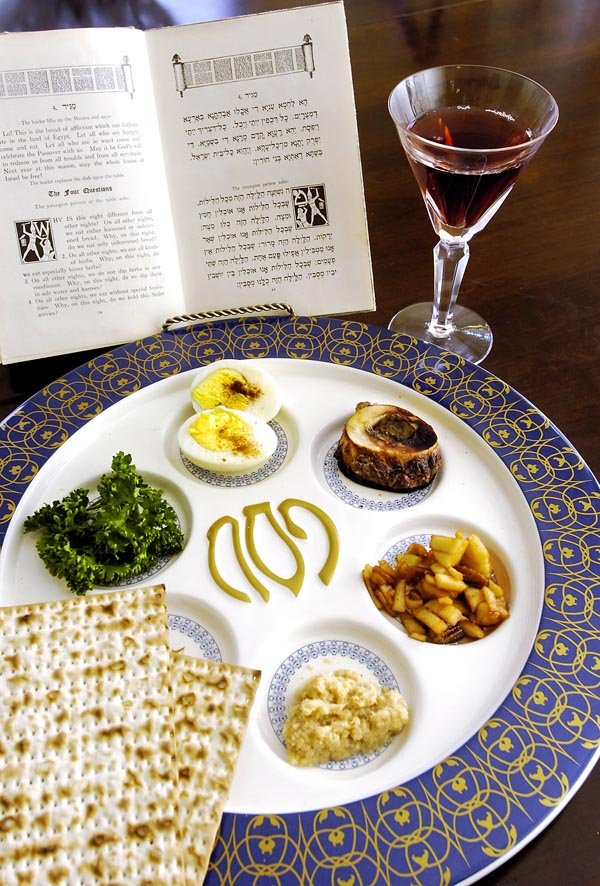
I hope that this information has broaden your view of “traditional” Christian Holidays. It is always so important to find out information for yourself. The more you read about different subjects to get different aspects the more informed you will be about the things that matter to you most. Thank you for taking the time to read. Please share with people you think will enjoy this information. You can catch more information like this at our YouTube channel GOD Loves Our Passion. Check that out here: http://www.youtube.com/user/GODlovesOurPassion
Thanks for your long post.
thank you ,i like it,we must always discover and recognize other cultures and religions. Do not judge others because of their religion or beliefs. We must respect liberty of beliefs and respect other religions.